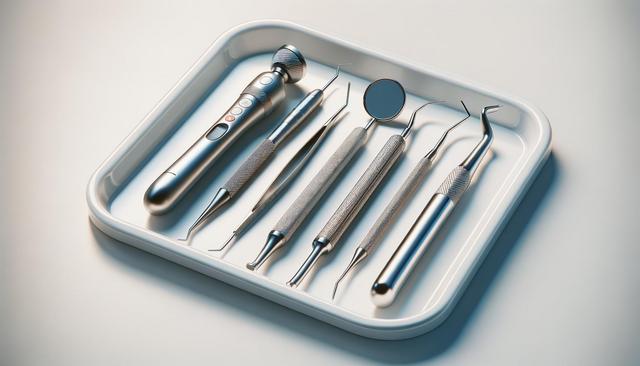Growing Demand for Preventive Oral Care
One of the primary reasons more people are considering dental hygiene programs is the increasing emphasis on preventive oral care. With rising awareness about the connection between oral health and overall well-being, dental hygienists play a crucial role in early detection and prevention. Regular cleanings, patient education, and screenings help reduce the need for more invasive procedures later. As more individuals search for a “Dentist Near Me” for routine checkups, the need for qualified dental hygienists continues to grow. This trend is especially strong in communities where access to dental care is improving, prompting more clinics to expand their teams.
In addition to supporting dentists in clinical tasks, hygienists provide valuable guidance on maintaining oral hygiene at home. Their role includes educating patients on proper brushing and flossing techniques, dietary choices, and lifestyle factors affecting oral health. As the public becomes more proactive about their dental care, the demand for knowledgeable and approachable hygienists increases, making this a stable and rewarding career choice.
Career Stability and Flexibility
Dental hygiene offers a unique combination of job security and work-life balance, which appeals to a wide range of individuals. Unlike many other healthcare careers, dental hygienists often enjoy flexible work schedules, including part-time or weekend options. This flexibility allows for better balance between personal life and professional obligations, especially for those caring for families or pursuing further education. Furthermore, the profession consistently ranks high in job satisfaction surveys due to its manageable stress levels and positive patient interactions.
Another factor driving interest in dental hygiene programs is the strong earning potential relative to the education required. With the ability to complete an accredited program in two to three years, students can quickly enter the workforce and begin earning a stable income. For those looking into transitioning careers or entering the healthcare field without the extended commitment of medical school, dental hygiene presents an appealing alternative. Additionally, hygienists often work in various settings, such as private practices, public health clinics, and educational institutions, providing diverse career paths.
Opportunities for Professional Growth
Becoming a dental hygienist doesn’t mean career growth stops at the clinical level. Many professionals use this role as a springboard into other areas of dentistry or healthcare. Some pursue advanced degrees to become educators, researchers, or public health advocates. Others transition into specialized fields like periodontology or pediatric care, where additional certifications can enhance their qualifications and responsibilities. As more patients explore procedures like “Teeth Dental Implants,” hygienists with advanced training in implant care and maintenance are increasingly sought after.
There is also a growing need for bilingual and culturally competent professionals who can serve diverse populations effectively. Dental hygiene programs are responding by offering courses in communication, ethics, and community health outreach. These additions not only prepare students for a broader range of responsibilities but also position them as valuable assets in modern dental practices.
Contributing to Public Health
Dentists and hygienists together form the backbone of community oral health. With many people actively searching to “Find Dentist Near Me,” the presence of skilled hygienists ensures that clinics can meet the growing demand for care. Beyond individual appointments, hygienists often participate in community outreach programs, school screenings, and public education campaigns. These efforts help bridge the gap in access to care and promote healthier habits across populations.
By educating underserved communities and participating in preventive initiatives, dental hygienists play a direct role in reducing the prevalence of oral diseases. Their contributions extend to early diagnosis of conditions like gum disease and oral cancer, which can have serious implications if left untreated. As public health priorities continue to emphasize prevention, the role of the dental hygienist is becoming increasingly central to achieving long-term health outcomes.
Why Now Is a Great Time to Enter the Field
Several factors are aligning to make this an opportune time to enter the dental hygiene field. First, the aging population is leading to a higher demand for dental services, including cleanings, exams, and restorative procedures. As more older adults retain their teeth longer, preventive and maintenance care becomes essential, further driving the need for hygiene professionals. Second, technological advancements in dental tools and techniques are making the profession more efficient and less physically demanding, improving long-term career sustainability.
Additionally, the growing popularity of aesthetic dentistry, such as whitening treatments and “Teeth Dental Implants,” is expanding the scope of services offered in dental offices. Hygienists trained in these areas can support dentists in delivering quality cosmetic outcomes. Finally, the increasing ease of finding dental care, with many patients searching for a “Dentist Near Me” online, is boosting patient volumes in clinics everywhere. As a result, more practices are hiring hygienists to manage this influx and maintain high standards of care.
Conclusion: A Meaningful and Promising Career Path
For those considering a career that combines healthcare, education, and community service, dental hygiene offers a compelling opportunity. The profession’s stability, flexibility, and potential for growth make it attractive to recent graduates and career changers alike. With the increasing demand for preventive care and the ongoing trend of patients looking to “Find Dentist Near Me,” the need for skilled hygienists is unlikely to slow down. As dental practices continue to expand and innovate, dental hygienists will remain essential in supporting both clinicians and patients on the journey to better oral health.




Leave a Reply